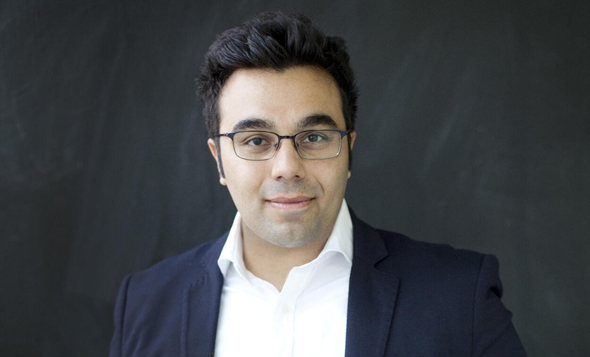Opinion
The rise in secondary deals is great news for the Israeli tech sector
"Recognizing secondary-share transactions as a legitimate, worthy, and valuable process for various industry players can drive the high-tech market one step further," writes Moran Chamsi of Amplefields Investments
In the past year, the subject of "high-tech millionaires" and their impact on the Israeli economy has repeatedly made headlines in the Israeli media. Many of these "new millionaires" were born as a result of the huge financial tech rounds we have witnessed recently, most of which have a significant secondary component.
This secondary component, which has become increasingly popular, is a necessary part of the Israeli high-tech industry's maturation process, enabling the large high-tech companies to leap forward in their operations. As a result, Israel has become a technological powerhouse on a scale that we have not seen before. These secondary-share deals add liquidity to the market and reduce external pressures on the entrepreneurs, company employees and seed investors. The impact of these secondary-share deals can be seen on several main levels:
Entrepreneurs – In recent years, there's been a significant increase in the amount of money flowing into investments in the Israeli high-tech market. As such, a window of opportunity has opened, allowing entrepreneurs to plan and establish high-tech companies with a broader, longer-term perspective as opposed to selling the company at an earlier stage. The opportunity now exists to cash in on business success by raising significant value and large sums of money instead of waiting for the big exit in the distant future.
When market conditions allow the company to raise the full amount it needs for the next stage and there is excessive demand to invest, then conditions are ripe to provide financial incentive to the entrepreneur and others in the form of buying – not diluting – their shares in a secondary transaction. This incentive allows entrepreneurs to actually enjoy the fruits of their success – and not just on paper, which empowers them financially and, of no less importance, mentally. This empowerment allows them to continue to see eye to eye with the other company stakeholders regarding the next target to accomplish.
 Moran Chamsi, managing partner in the secondary fund Amplefields Investments. Photo: Meirav Ben Lulu
Moran Chamsi, managing partner in the secondary fund Amplefields Investments. Photo: Meirav Ben Lulu
Company employees – when market conditions present an excess demand for talented employees it is defined as an "employee's market." Dealing with quality manpower is difficult, and employees know that. Therefore, there are other considerations that affect an employee's decision-making when it comes to choosing which company to join or whether to move on to the next venture or continue working in the current company. When the company prioritizes its understanding of the importance and desire to reward employees by allowing them to sell some of their shares while the company is successfully raising significant capital to finance the next stage and raise value for the existing shareholders, then employees immediately share in the company's success, which they feel they are a part of. This, in turn, strengthens their sense of belonging and pride in the company.
Every entrepreneur / CEO wants to have satisfied employees who are honest advocates, have team spirit and feel like co-founders. After all, from the start, they believed in the idea, the venture and, most importantly, in the entrepreneurs. As for investors, they entered the early stages of the start-up and knew that their investment amount was "locked" and would therefore be unavailable for a long time. But as the life expectancy of the startup – from establishment to exit – has increased, so too has the period of lack of liquidity. The secondary market provides significant value, which enables these investors, whether they continue to financially support the company or not, to realize and access part of their investment. Consequently, they can devote these resources to investing in new ventures.
The very fact that entrepreneurs and other shareholders also allow veteran investors in the company to realize and access money at this secondary-share deal stage contributes greatly to securing the cornerstones of the connection and trust initially set between investors and entrepreneurs.
On the other hand, when the market is not regulated and the transactions are not made with the full cooperation of the entrepreneurs and the company, they can create damage to the company's strategy and activities. Entrepreneurs and the company's management have an extensive set of considerations that not everyone knows about. Therefore, when such a transaction is made at a certain time, price, and without coordination with the company's management, especially in a situation that does not always meet the company's business and financing needs, the potential for damage can be greater than the benefit.
And so, in recent years, we have witnessed the secondary market emerging and evolving. More and more companies are regulating the secondary-share transactions in this market and accepting them with open arms out of an understanding of the needs and benefits that come with these transactions.
- "The secondary celebration will not continue. The market of 2021 is over"
- Secondary tech deals are transforming Israel's economy
- Israeli tech employees cash in over $2 billion in Q1 secondary deals
As long as such an investment / sale is made with transparency and in full cooperation with the entrepreneurs and management, the benefit to the company's stakeholders is expected to increase, and its contribution to the entire high-tech market will increase tenfold.
Recognizing secondary-share transactions as a legitimate, worthy, and valuable process for various industry players can drive the high-tech market one step further. This market gives employees and investors additional motivation to join the high-tech start-up journey, even in the ventures' early stages. And for the entrepreneurs themselves, it is another incentive to give 100% to ensure the future of the company.
Moran Chamsi is the managing partner in the secondary fund Amplefields Investments



